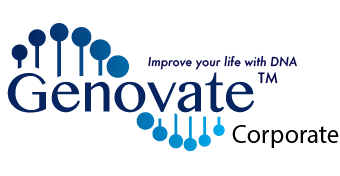Aspirin & Colorectal Cancer Risk DNA Test
Aspirin is commonly recommended as a preventative medication to protect against heart attacks in at-risk individuals. Several studies have also identified an association between aspirin use and a reduced risk of developing colorectal cancer. However, this benefit depends on genetic variation. Some individuals inherit genetic variants that result in an increased risk of colorectal cancer if taking aspirin regularly. This test determines whether or not an individual will benefit from taking low dose aspirin over an extended period.
Colorectal cancer facts
- Cancers in the colon and rectum
- Also known as bowel cancer and colon cancer
- More than 1 million new cases worldwide every year
- 2nd most common cancer in women (globally)
- 3rd most common cancer in men (globally)
- One of the leading causes of deaths due to cancer
- Risk is increased by obesity, physical inactivity, smoking and consumption of red and processed meat
- Gastrointestinal bleeding and ulcers
- Ringing of the inner ear
- Dizziness
- Nausea
- Abdominal pain
- Headaches
- Muscle cramps
- INCREASED risk of colorectal cancer if you have inherited the “wrong” genes
Genetic variants associated with cancer risk and regular aspirin use
Recent studies have shown that two genetic variants are associated with the effects of aspirin on colorectal cancer risk – rs2965667 near the MGST1 gene, and rs16973225 near the IL16 gene. The most common nucleotide at each marker is associated with a decreased risk of colorectal cancer if aspirin is used regularly.
However, individuals who inherit the “wrong” genes receive no colorectal cancer-related benefits from aspirin use:
- Rare nucleotide at marker rs2965667 (4% of the population) = INCREASED risk of colorectal cancer with regular aspirin use
- Rare nucleotide at marker rs16973225 (9% of the population) = no change in colorectal cancer risk with regular aspirin use
 Would you like to add this test to your Reseller account?
Would you like to add this test to your Reseller account?
Not a Reseller yet?
Just require this test? Click here to return to the Genovate Consumer site to order this test directly
